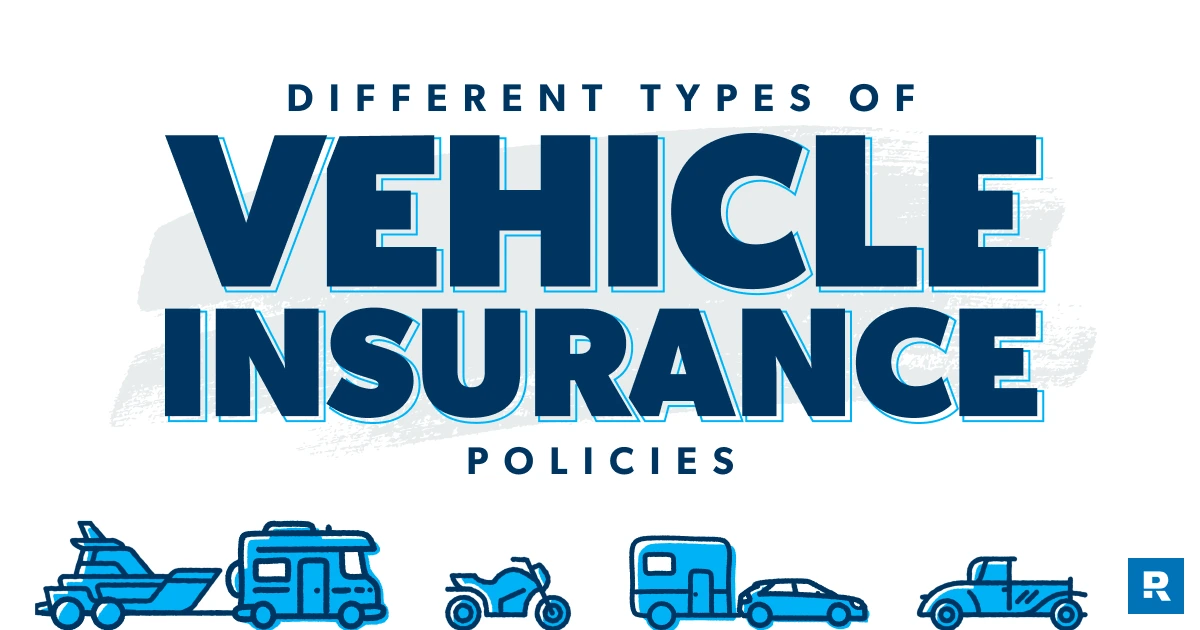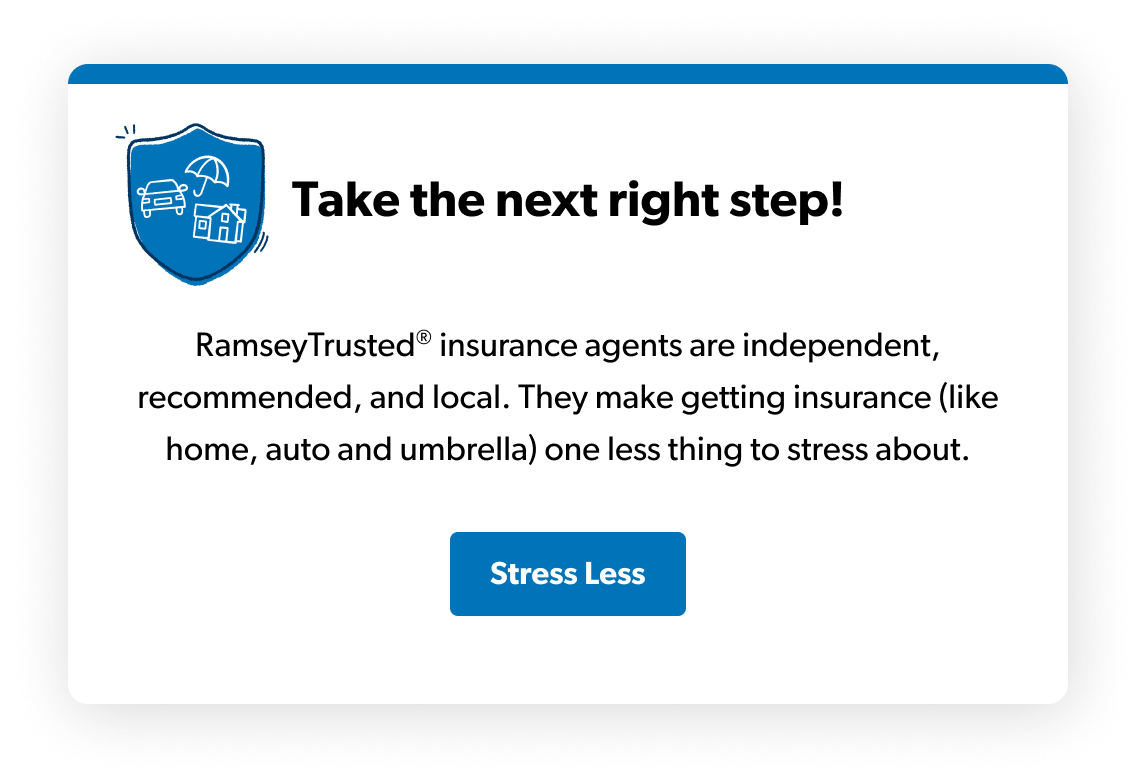
Key Takeaways
- Nontraditional vehicles and unique driving circumstances carry financial risks just like regular car ownership. So insurance coverage for these situations is a must.
- You can get specialized insurance policies—for classic cars, motorcycles, RVs and boats—that are tailored to the vehicle’s risks and usage.
- Temporary insurance options like rental, short-term and non-owner policies provide protection for drivers who don’t own the car they’re driving.
- Choosing the right insurance policy depends on how you use the vehicle and whether you own it. An independent insurance agent can help make sure you get the proper coverage.
Your regular old Honda Civic isn’t the only kind of vehicle on the road. You’ve got RVs, motorcycles, boats (yeah, probably not on the road), and classic cars. Then you have situations where you might need to be covered as a driver of a car you don’t own. These are circumstances where you might need specialty or temporary vehicle insurance.
Why Do You Need Specialty and Temporary Vehicle Insurance?
Specialty vehicles on the road or water carry the same risks as a regular car—and in some cases, they cost a lot more! So you definitely need protection for those vehicles just like you would for your Ford F-150 or Toyota RAV4.
And as a driver—even if you don’t own the car you’re operating—you run the same liability risks as a driver in their own vehicle. In both cases, you need protection for your financial risk.
Specialized Vehicle Insurance
Policies for specialized vehicles are less common but no less important. If you drive your boat into someone else’s two-story dock because your 14-year-old distracted you with his antics, you’ll need insurance to pay for the boat, the dock and possibly even medical bills if anyone was standing up there.
Let’s take a look at four kinds of vehicles and their specialized policies.
Classic Car Insurance
There’s no standard definition for a classic car in the U.S., but states have their own laws around what qualifies as classic. In Tennessee, for example, a classic car must be at least 25 years old, unmodified and kept only as a collector’s item.
Policies for these vehicles are a little different from those for a standard modern car.
With classic car insurance, instead of actual cash value coverage, you get agreed value coverage. Because classic cars don’t depreciate the same way modern cars do, you and the insurer will work out an agreed value for the car—and that’s the amount the car is insured for if it were totaled. In fact, these policies allow you to adjust your coverage up if your classic car appreciates. All of this means your premiums will vary wildly from policy to policy.
Classic cars aren’t used for commuting or everyday runs to Walmart, so policies usually have a limit on the number of miles you can drive them in a year. Often, policies will also cover the higher cost of repairs because old-timey parts can be pricey.
Motorcycle Insurance
You’d better believe motorcyclists need coverage! In 2023, they were 28 times more likely to be involved in a deadly accident than people in cars.[1] Motorcycle policies will usually cover a variety of vehicles similar to a motorcycle including scooters, mopeds, trikes, ATVs and dirt bikes.
The cost for a motorcycle policy will vary a lot depending on factors like the type of bike you have and how often you ride it.
RV Insurance
Before you drive your Airstream off into a Grand Canyon sunset, you’ll need an RV insurance policy. This type of insurance has more protection than your standard auto policy—it covers your vehicle as well as some of the living space around it when it’s hooked up.
Do you have the right insurance coverage? You could be saving hundreds! Connect with an insurance pro today!
You can get different policies based on whether you use your RV full time or only recreationally. RV size varies so much that these policies are also grouped by size classes. And the cost of this insurance will vary a lot based on the class of your motor home and other factors like how much you use it.
Boat Insurance
If you’re king of the world and can stand on the bow of your own boat, you need boat insurance (especially if your vessel has anything in common with the Titanic). Usually, boat insurance covers vessels under 27 feet long—we’re talking pontoon boats, speedboats, fishing boats and similar watercraft (no, you don’t need insurance for your canoe). If you’re a gazillionaire and own a yacht, you’ll need yacht insurance.
Boat insurance typically covers much of the same stuff auto insurance covers: liability, damage (comprehensive and collision), theft and medical payments. The cost for a policy will vary based on factors like the size, type and location of your boat.
Temporary Vehicle Insurance
This is insurance for renting a car, visiting family and borrowing someone else’s car, or driving when you don’t own a vehicle yourself—definitely a little less common, but in the right situation, you’ll be glad you have it!
Rental Car Insurance
Rental car agents always try to sell you on it, but should you get rental car insurance?
Pretty much the only time you need rental car insurance is if you don’t have your own auto policy already—because your policy will cover you in the rental car the same as it does in your own car. You should always check your exclusions, though. If you’re renting a Lamborghini to cruise the Amalfi Coast or an RV (low-key bus), your policy might not cover that.
Short-Term Car Insurance
Short-term car insurance is for anyone planning to drive who doesn’t have their own policy. This could be you trying to fill a gap between permanent policies, your kid coming home from college, or a friend borrowing your car for a period of time. States require anyone driving to be covered by insurance.
That said short-term insurance is hard to find and tends to be expensive. The major insurance companies don’t offer short-term policies and prefer to point you toward getting a full-length policy with all the typical coverage and cancelling it early. This is often a good option since a short-term policy is more expensive per day.
Non-Owner Car Insurance
This kind of insurance is geared toward some of the same people short-term car insurance works for, but it’s more specific. Non-owner car insurance is for people driving a car they don’t own. This could include people who use rental cars frequently (like some rideshare drivers) or someone borrowing a car for an extended period.
Mainly, non-owner car insurance provides liability coverage to help pay for damage in case you hit someone. Now keep in mind, if you’re borrowing a friend’s car for a week, you can use it a few times and be covered under their policy. This type of insurance is for someone borrowing for a long time.
Get the Right Coverage for Your Ride
Whether you’re driving a Model A, a Sea-Doo or your friend’s Prius, you’ll need some specialized insurance. If you need a policy, get in touch with a RamseyTrusted® pro—they can help you find the right policy for your ride no matter what the situation.
Next Steps
- If you’ve got a classic car, read up on the details of coverage.
- Got a hog you’re riding down the freeway? Check out how much motorcycle coverage will run you.
- Make sure you know the ins and outs of RV coverage before you buy.
- Think you need non-owner car insurance? Make sure with this article.
- Finally, connect with a local RamseyTrusted pro to get a quote for the policy you need today.



